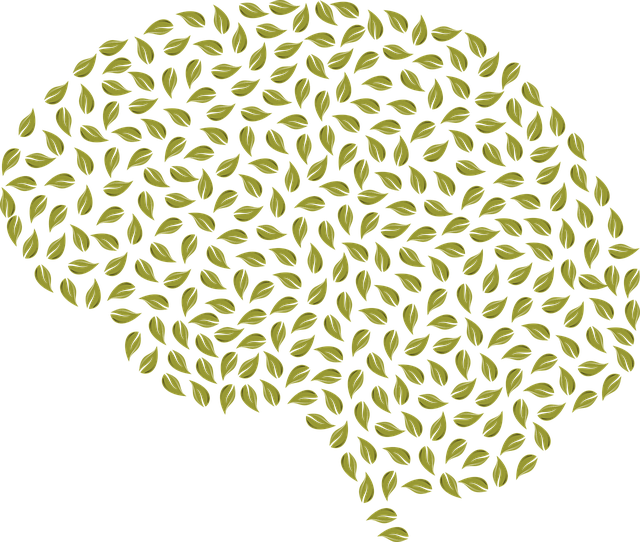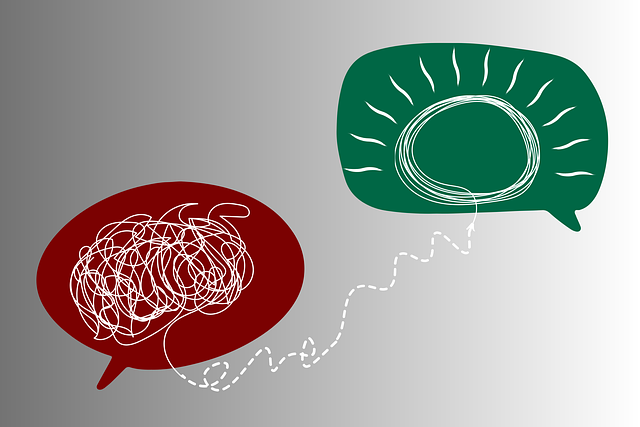Mindfulness meditation, integrated into treatment plans at Greenwood Village Bipolar Disorder Therapy, effectively manages symptoms by promoting emotional stability and reducing anxiety/depression. Creating a dedicated quiet space, practicing self-compassion, and setting intentions are key to reaping its benefits. Starting with short daily sessions, focusing on breath, and redirecting thoughts non-judgmentally helps improve stress management and overall well-being. Integrating mindfulness into daily activities like eating or walking enhances emotional intelligence and resilience in navigating life's challenges. Tracking progress through journaling or apps, overcoming hurdles with guidance from therapists, and engaging resources like podcasts foster a calmer mind.
Unwind and find inner peace with mindfulness meditation, a powerful tool in managing bipolar disorder. This comprehensive guide, tailored for residents of Greenwood Village seeking therapy, explores how meditation can stabilize moods and enhance overall well-being. From understanding its benefits to mastering techniques and integrating practice into daily life, we provide practical steps for beginners. Discover strategies to overcome challenges and track progress, empowering you on your journey towards a more balanced mind in the heart of Greenwood Village.
- Understanding Mindfulness Meditation for Bipolar Disorder Management
- Preparing Your Space and Mindset for Effective Practice
- Techniques to Begin and Sustain a Meditation Routine
- Integrating Mindfulness into Daily Life for Long-Term Benefits
- Tracking Progress and Overcoming Common Challenges in Meditation
Understanding Mindfulness Meditation for Bipolar Disorder Management

Mindfulness meditation has emerged as a powerful tool within the realm of bipolar disorder management. It involves cultivating present-moment awareness and non-judgmental attention to one’s thoughts, emotions, and bodily sensations. For individuals grappling with bipolar disorder, this practice can offer a peaceful sanctuary from the tumultuous fluctuations of mood and energy levels. By focusing on the here and now, mindfulness meditation helps reduce symptoms of anxiety and depression, two common complications associated with bipolar disorder.
In Greenwood Village Bipolar Disorder Therapy, mindfulness meditation is often integrated into comprehensive treatment plans. It serves as a practical strategy for risk management planning, empowering individuals to effectively monitor and regulate their emotional states. Moreover, the practice fosters mental wellness by promoting self-compassion, emotional regulation, and improved overall well-being. Community outreach program implementations that incorporate mindfulness meditation have shown promising results in supporting those with bipolar disorder, emphasizing the importance of accessible and holistic mental health care solutions.
Preparing Your Space and Mindset for Effective Practice

Creating a dedicated space for your mindfulness practice is the first step towards reaping its benefits. Consider a quiet area in your home, free from distractions and clutter, where you can sit comfortably and uninterrupted. This could be a corner of your bedroom, a spare room, or even a small balcony—any place that feels peaceful and calming to you. Ensure it’s an environment that supports your mental well-being, especially if you’re managing bipolar disorder, as Greenwood Village Bipolar Disorder Therapy emphasizes the role of self-care in treatment plans.
Before you begin, take a moment to set your intentions and cultivate a mindset of openness and curiosity. Approach mindfulness meditation with a sense of self-compassion and without judgment. Remind yourself that each practice is an opportunity to connect with your inner self, enhance focus, and develop a deeper understanding of your thoughts and emotions. This mental shift can significantly improve stress management skills and overall well-being, even complementing the work done through Stress Management Workshops Organization or Community Outreach Program Implementation initiatives.
Techniques to Begin and Sustain a Meditation Routine

Beginning a mindfulness meditation practice can feel daunting, but with consistent effort and tailored techniques, it becomes an accessible and powerful tool for enhancing mental wellness. For individuals managing bipolar disorder, like those seeking Greenwood Village Bipolar Disorder Therapy, establishing a routine is key. Start small, dedicating just 5–10 minutes daily to silent introspection. Begin by finding a quiet space where you can sit comfortably with your eyes closed. Focus on your breath, noticing the rise and fall of your chest without attempting to control it. When thoughts inevitably arise, acknowledge them non-judgmentally and gently redirect your attention back to your breath.
To sustain momentum, integrate mindfulness into daily activities. For example, practice mindful eating by savoring each bite or engage in mindful walking, paying attention to bodily sensations as you move. Additionally, consider joining a community of like-minded individuals through meditation groups or explore Mental Wellness Coaching Programs Development for personalized guidance. Incorporating practices that foster emotional well-being promotion techniques and cultivating cultural sensitivity in mental healthcare practice can significantly enhance the benefits of meditation, allowing individuals to navigate life’s challenges with greater equanimity.
Integrating Mindfulness into Daily Life for Long-Term Benefits

Integrating mindfulness into daily routines can significantly enhance mental well-being and offer long-lasting benefits for individuals managing conditions like bipolar disorder in Greenwood Village. Beyond its use as a therapeutic tool, mindfulness meditation becomes a powerful ally in navigating life’s challenges. By cultivating present-moment awareness, individuals can develop a deeper understanding of their thoughts and emotions, fostering better self-regulation and emotional intelligence. This practice encourages a more mindful approach to daily interactions, leading to improved relationships and effective conflict resolution techniques.
For those seeking anxiety relief and compassion cultivation practices, mindfulness meditation provides a safe space to observe thoughts without judgment. Over time, this can reduce the impact of anxious thoughts and foster a sense of calm. The benefits extend beyond mental health; regular practice enhances overall quality of life, allowing individuals to embrace each day with greater clarity, purpose, and resilience, ultimately transforming their approach to managing bipolar disorder in Greenwood Village.
Tracking Progress and Overcoming Common Challenges in Meditation

Tracking progress in your mindfulness meditation practice is an essential part of the journey towards improved mental wellness. While it might seem counterintuitive to measure success in something as subjective as meditation, setting measurable goals can help guide your practice. Start by defining what success means to you—is it increased focus during daily tasks? Better emotional regulation? Or perhaps a deeper sense of calm? Use a journal or a dedicated app to record your experiences, noting any changes in your mood, stress levels, and overall well-being over time. This process allows you to identify patterns and make adjustments to tailor your practice to your unique needs.
Challenges are inevitable when embarking on a meditation journey, especially for those managing bipolar disorder or other mental health conditions. Common obstacles include a wandering mind, physical discomfort, or feeling overwhelmed by the silence. Recognize these challenges as normal parts of the process, and don’t be discouraged. Incorporate burnout prevention techniques, such as listening to your body’s cues and taking breaks when needed. Consider seeking guidance from a therapist specializing in Greenwood Village bipolar disorder therapy for personalized strategies to overcome these hurdles. Additionally, explore resources like mental wellness podcast series production for engaging content that can offer new insights and keep your practice fresh and inspiring. Remember, the path to a calmer mind is often paved with perseverance and self-compassion.
Mindfulness meditation, as explored through this comprehensive guide, offers a powerful tool for managing bipolar disorder. By creating a peaceful space, adopting a consistent mindset, and employing various techniques, individuals can embark on a journey towards emotional balance. Integrating mindfulness into daily routines allows for long-term benefits, fostering resilience against the challenges of bipolar disorder. Remember, with dedication and tracking progress, common meditation hurdles can be overcome. For personalized support, considering Greenwood Village Bipolar Disorder Therapy can provide tailored guidance to enhance your mindfulness practice and overall well-being.














